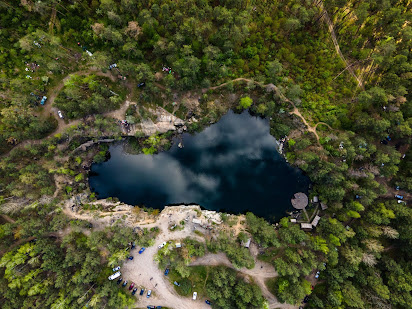Are humans still evolving?
It’s an important question, with our modern lifestyles, healthcare and
technology there is seemingly no need to change ourselves even with the world
changing around us. For
many species, evolution cannot come fast enough, polar bears are losing hunting
grounds, deserts are getting drier, more land is flooding and that’s before
looking at trials faced by insects such as bees.
The thoughts are that humans
are indeed still evolving just very slowly and in ways that are not as easily
observed. For
example, the brain gene Microcephalin (MCPH1) which regulates brain size has
been found to still be evolving in modern humans (Patrick et al, 2005). A sure sign that as our world
changes we are likely having to adapt through the use of our brain rather than
physical attributes.
Originally many high latitude countries
were populated by those with high levels of melanin (skin pigment) which then
reduced leaving most with pale skin. As the climate changes and countries such as the UK are
subject to increased levels of strong sunlight, which is a regulator of skin
pigmentation (Parra, 2007) higher latitude countries may slowly shift back to
darker skin.
Whilst physical changes may or may not occur in human
futures it is widely thought that cultural evolution has now replaced evolution
based on biological characteristics (Dyson, 2007, Ward, 2001). White (1959) describes cultural evolution as behaviour which
has been learned or adaption outside of the body of a non-biological nature. As adaption is simply a mechanism which allows the
individual to cope with the stresses of their environment. It is therefore, understandable that given the more sociable
and cultural nature of modern society most of the modern humans’ evolution is
cultural.
It can therefore be concluded
that whilst human evolution in the traditional sense is limited, we are as a
species still adapting and evolving to our environment. Whether this is to cultural
changes or to disease (see Stock, 2008 for more information on disease
evolution influence) the human form is still far from final.
What do you think? Are the
changes we as a species are experiencing would/ should be considered as
evolution? Or are they merely adaptations of a generation which will be lost in
the next? Discuss in the comments, all opinions are welcome but remember there
may be young readers so keep language clean.
References
Dyson F. 2007. The era of Darwinian evolution is
over. New Perspect Q 24: 58–59
Parra, E.J., 2007. Human pigmentation variation: evolution,
genetic basis, and implications for public health. American Journal of
Physical Anthropology: The Official Publication of the American Association of
Physical Anthropologists, 134(S45), pp.85-105.
Patrick D. Evans, Sandra L. Gilbert, Nitzan
Mekel-Bobrov, Eric J. Vallender, Jeffrey R. Anderson, Leila M.
Vaez-Azizi, Sarah A. Tishkoff, Richard R. Hudson, Bruce T. Lahn.,
2005. Microcephalin, a Gene Regulating Brain Size, Continues to Evolve
Adaptively in Humans. Science09 Sep: 1717-1720
Stock, J.T., 2008. Are humans still evolving?: Technological
advances and unique biological characteristics allow us to adapt to
environmental stress. Has this stopped genetic evolution?. EMBO
reports, 9(1S), pp.S51-S54.
Ward P.,2001. Future Evolution. New York, NY, USA:
Henry Holt
White L. A., 1959. The Evolution of Culture. New
York, NY, USA: McGraw‐Hill




No comments:
Post a Comment